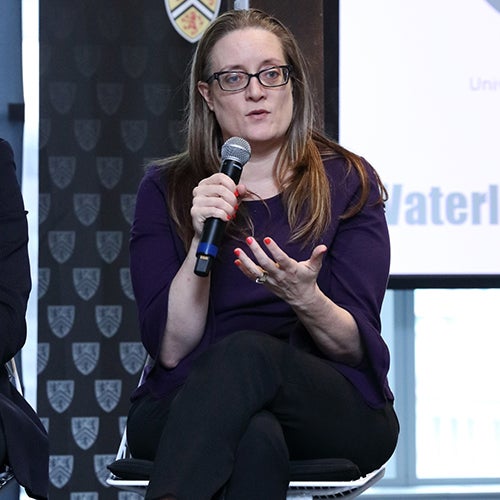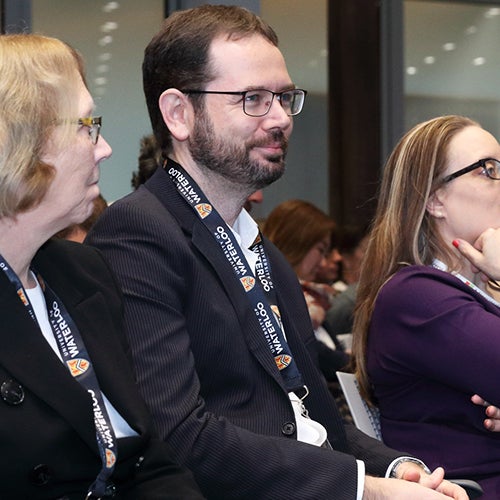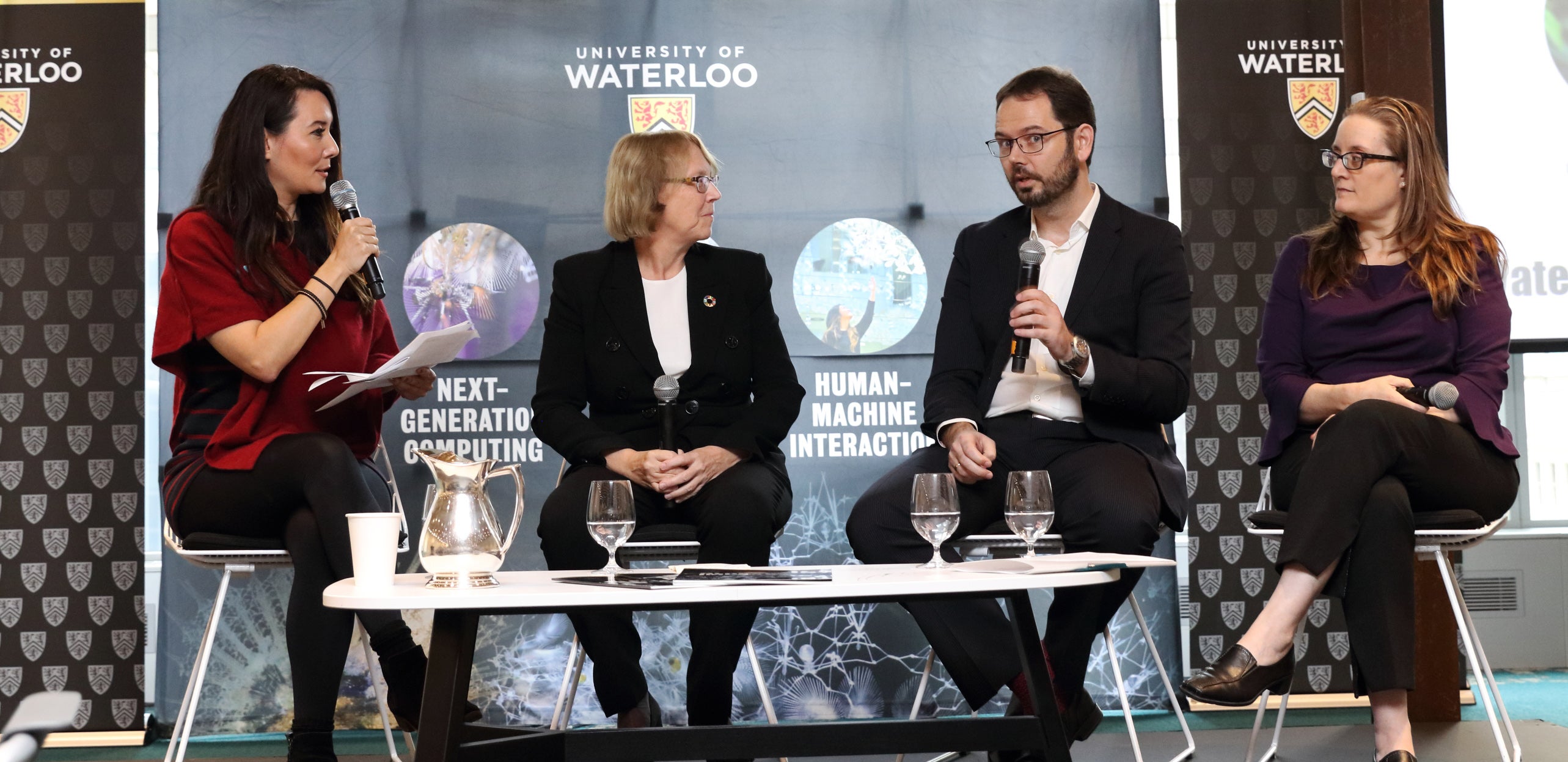
Waterloo Innovation Summit addresses climate change at Vancouver event
Speakers series generates dialogue and action on the world’s most pressing issues.

Speakers series generates dialogue and action on the world’s most pressing issues.
By Natalie Quinlan University RelationsArtificial Intelligence could help the world get ahead of the risks of climate change, according to three Canadian technology giants including the University of Waterloo, Microsoft Vancouver and SAP Labs Canada.
Thought leaders from across the country gathered in Microsoft’s Vancouver headquarters to discuss climate change and technology’s role in helping Canadians adapt.

Kirsten Sutton, vice-president and managing director of SAP Labs Canada.
“I think there’s two things that AI can provide,” said Kirsten Sutton, vice-president and managing director of SAP Labs Canada. “One is really being able to crunch tons of data and being able to get information faster than we ever have before. The second one is to be able to apply predictive models to things so that we can see ahead and get ahead of the curve.”

Mark Crowley, electrical and computer engineering professor at the University of Waterloo
“[AI] is very pivotal because we basically have to do more than we can do ourselves to make bigger and better decisions on problems outside of our own experience,” echoed Mark Crowley, electrical and computer engineering professor at the University of Waterloo. “Helping us wrangle all of the data, satellites, various information, crowd-source data, the tools of AI let you find ways to do that.”

(Left to right) Ziya Tong, Jean Andrey, Mark Crowley and Kirsten Sutton.
“It’s important to have Canada’s tech leaders come together right now especially when we’re seeing growing catastrophes with climate change,” said Tong. “We can use technology to help us really adapt with the oncoming crises, and hopefully help us offset some of the greater damages that we’ll begin to see.”
The Summit echoed the importance of leveraging artificial intelligence (AI) within the scope of climate adaptation as a method of model prediction for future extreme weather events.
“Climate change is real, but not only is it real, it’s irreversible, it is here to stay,” Waterloo’s Blair Feltmate said in his opening remarks. “It’s not that we’re not moving in the right direction in reference to adapting to climate change and extreme weather risk, it’s the rate at which we’re moving. For Canada, the trick on adaptation is to move faster. The stress on the system is increasing very rapidly, and we’re keeping up so-so.”

Blair Feltmate, head of the Intact Centre on Climate Adaptation.
“The University of Waterloo is really proud to host the Canadian chapter of the Sustainable Development Solutions Network,” said Jean Andrey, dean of the Faculty of Environment. “This particular event is wonderful because it brings together big questions about technology and big questions about sustainability and as hosts, our job is to engage the other academics in this country and in fact, citizens at large on how to move Canada forward on sustainability and these, if they can come together, can help us solve a lot of our challenges.”
Continue following the speaker series conversation by signing up for future Summit updates.

Read more
Professor Blair Feltmate says simple changes like adding curbs and water sensors can potentially save lives

Read more
Combining machine learning techniques with real-world scenarios to combat forest fires

Read more
Dean Andrey ‘s research has made roads safer for millions of drivers with the winter severity index
The University of Waterloo acknowledges that much of our work takes place on the traditional territory of the Neutral, Anishinaabeg, and Haudenosaunee peoples. Our main campus is situated on the Haldimand Tract, the land granted to the Six Nations that includes six miles on each side of the Grand River. Our active work toward reconciliation takes place across our campuses through research, learning, teaching, and community building, and is co-ordinated within the Office of Indigenous Relations.